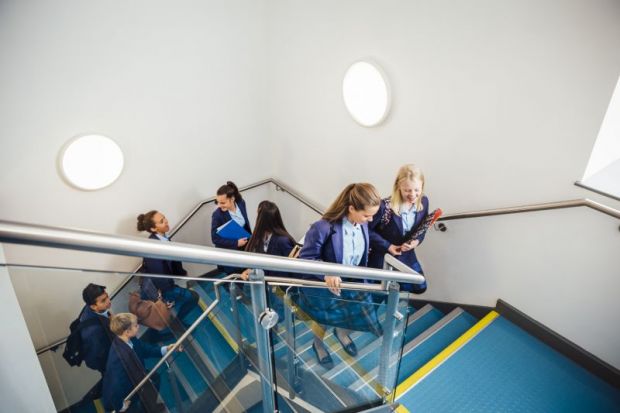Schoolchildren who are old for their classes are significantly more likely to reach university than their youngest peers, and it makes no difference if they started late or were forced to repeat a year.
An Australian study has found that school students have a 58 per cent probability of progressing to higher education if they are 12 months older than the class average. This compares with 52 per cent among those who are 12 months younger.
The researchers say the gap reflects differences in “academic self-confidence” rather than physiological or intellectual limitations. They say self-belief is a “driving force” in young people’s academic decision-making processes, with numerous studies showing that self-concepts predict educational aspirations.
“The joy or shame that comes from acceleration or retention is likely to erode over time, whereas the ever-present comparison with same-class peers becomes an indomitable influence in the way children come to view themselves academically,” the researchers report in the Journal of Educational Psychology.
The study was led by the Australian Catholic University and included researchers from Australian National University and Cornell University in New York. Using longitudinal data, the team tracked the educational outcomes of more than 10,000 Australians born in 1987 and 1988.
They found that the negative impact of being young for the class was most pronounced among low academic achievers, who were 18 per cent less likely to enter university than older counterparts of similar academic ability.
The differential was 11 per cent among children of moderate academic ability and 5 per cent among high achievers.
“It’s not only academic issues; it’s also social maturity and physical development,” said co-author Herbert Marsh, of ACU’s Institute for Positive Psychology and Education. “Kids who are the youngest in the class are going to be disadvantaged in sports and probably some of the social aspects as well.”
He said the key finding – that children who repeated a year of school experienced ongoing educational benefits – was “quite controversial”, contradicting assumptions that it dented confidence. But an analysis of longitudinal data from an earlier study in the same research program had also shown that the benefits of repeating a grade lasted well beyond a year.
Professor Marsh said repeating a year of school gave children more time to master subjects, and it interrupted a vicious cycle where struggling students slipped further and further behind.
He said the take-home message for parents was not to send their children to school too early. “Particularly if there’s some sense that they’re going to be slow to develop, it’s better to hold them back.”
For policymakers, the research raised question marks over “the assumption that it’s bad to hold kids back if they haven’t mastered the material. For the most part, it isn’t done any more. This research is questioning that policy.”
Register to continue
Why register?
- Registration is free and only takes a moment
- Once registered, you can read 3 articles a month
- Sign up for our newsletter
Subscribe
Or subscribe for unlimited access to:
- Unlimited access to news, views, insights & reviews
- Digital editions
- Digital access to THE’s university and college rankings analysis
Already registered or a current subscriber?







